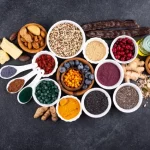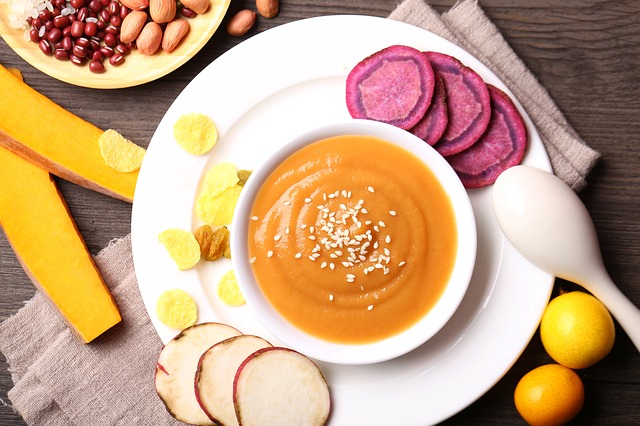
Image Source: Pixabay
To get the most out of what you eat in a single day, choosing foods that are rich in nutrients is the best way.
Nutrient-dense foods are rich in vitamins, minerals, carbohydrates, lean protein, and healthy fats that are important to the body. These foods give you the most nutrients with the fewest amount of calories intake.
Aside from that, nutrient-dense foods also help fight the risk of certain diseases, including heart disease, diabetes, and cancer. For those who are not eating enough healthy foods, you may want to start adding nutrient-dense foods to help fill in your nutrition gaps.
According to Bill Bradley, a Registered Dietitian & Nutritionist; eating a lot of green leafy vegetables, citrus fruits, nuts, whole grains and natural proteins that come from fresh meat & egg can help you live a healthy life for years.
Adding nutrient-dense foods is the healthiest way to eat. Regularly eating these foods will not only make you have a balanced diet but may also provide you various health benefits.
So, what are some examples of foods that are rich in essential nutrients?
Here are the top seven most nutrient-dense foods that you should add to your diet.
1. Liver
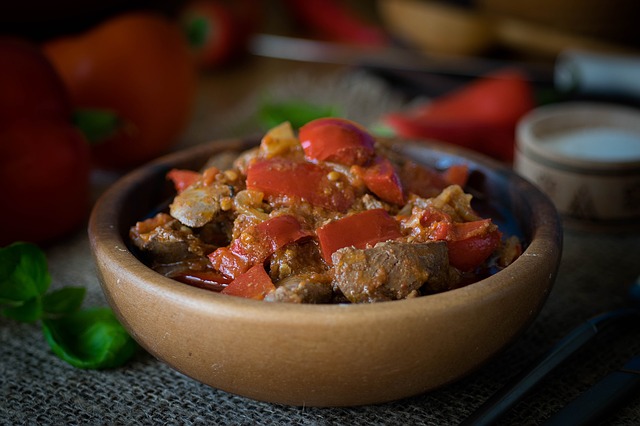
Humans have been eating animals for several years.
Back in the day, eating organs is more preferred, and muscle meat is given to dogs. But this practice has long changed. The modern diet has prioritized muscle meat over organ meats. And this should not be the case.
Out of all the organs, the liver is the most nutritious. It is also an organ with hundreds of important functions. One of which is to store the essential nutrients needed by the body.
A 100-gram of beef liver contains some of the following: Vitamin B12, Vitamin B5, Vitamin B6, niacin, folate, Vitamin B2, Vitamin A, copper, iron, phosphorus, zinc, and selenium.
Optimal amounts of these essential nutrients are acquired by adding liver to your diet at least once per week.
2. Salmon

It is no secret that salmon offers a variety of health benefits.
Fatty types of fish, including salmon, contain the greatest amount of omega-3 fatty acids. Every 100 grams of wild salmon contains 2.8 grams of omega-3s.
Omega-3 fatty acids are an important nutrient needed by the body. It supports various functions of the body and reduces the risk of heart disease.
Aside from its beneficial composition of fatty acids, salmon has other important nutrients. It is a good source of magnesium, potassium, and selenium, and it is also rich in Vitamins B-12 and D.
Adding salmon to your diet at least once or twice a week will help you get the omega-3s that your body needs.
It shouldn’t be hard to do so since aside from being tasty, salmon is fairly easy to prepare. To boost the nutritional content of your salad, you can add smoked salmon. Some people even use it as a topping on their cucumber slices.
3. Legumes

Beans, peas, lentils, soybeans, and peanuts are some examples of legumes.
Legumes are a food group that includes foods that are rich in dietary fiber. They are rich in complex carbohydrates that can provide the body with lasting energy.
Although rich in carbohydrates, legumes have a low glycemic index and load. It means that the body can convert legumes into energy without causing a huge increase in blood glucose levels. Because of this, legumes help people prevent or manage certain types of diabetes.
Legumes are also one of the best plant-based sources of protein which makes them suitable for a vegan or vegetarian diet.
4. Kale

Of all the healthy leafy-green vegetables, Kale is by far one of the most nutritious.
Kale may even be healthier than spinach as it is lower in oxalates. These substances bind minerals like calcium in the intestine, preventing them from being absorbed by the body.
It is rich in dietary fiber, protein, and several antioxidants, including beta-carotene. A 100-gram portion of kale contains large amounts of Vitamin B6, potassium, calcium, magnesium, copper, and manganese.
Kale is rich in Vitamins A, C, and K. Vitamin K is essential for bone marrow and tissue health. It also supports various processes in the body and prevents blood clotting.
The vegetable is high in bioactive compounds, including isothiocyanates and indole-3-carbinol, which have been shown to fight certain diseases, including cancer.
To add kale to your diet, you can sauté it. It can even make an excellent addition to your salad or smoothie.
There are other ways to prepare a meal with kale. Easy kale recipes are available online. You can research them yourself or hire someone for a virtual assistant service to get it done.
5. Eggs

Eggs are one of the foods that have earned a negative reputation due to their cholesterol content.
However, studies have shown that dietary cholesterol isn’t something that you need to worry about. Eating a moderate amount of cholesterol does not increase the ‘bad’ cholesterol in your blood.
Eggs are one of the most nutrient-dense foods on the planet. They are loaded with multivitamins and contain a long list of essential nutrients. They are also rich in choline, lutein, and zeaxanthin.
Choline helps in protecting the body against diabetes and DNA damage. It is an essential nutrient crucial for brain health. It is sad to know that many people have a choline deficiency at the present time.
Lutein and zeaxanthin are antioxidant compounds that help protect eyesight as you age. They also reduce the risk of macular degeneration.
6. Sardines
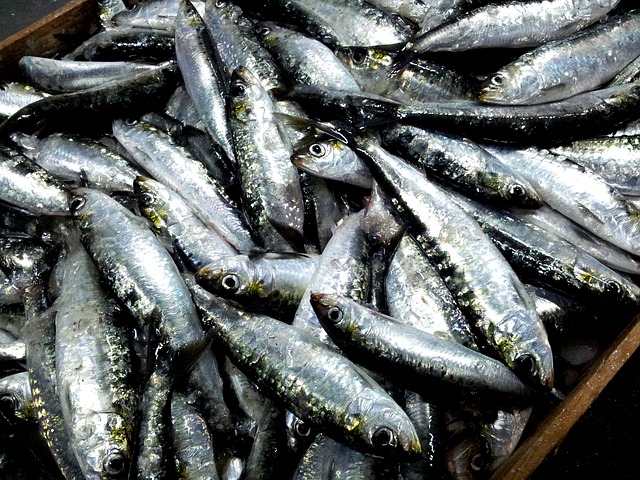
Organs are usually the most nutritious parts of an animal. Thus, the small and fatty fish like sardines, which are usually eaten whole are not surprisingly very nutritious.
Eating sardines as a whole, including the organs, bones, brains, and other nutritious parts, gives you enough nutrients needed by the body. Sardines contain a little bit of almost every nutrient that you need making it a food that is nearly nutritionally perfect.
Like any other fatty fish, sardines are very rich in omega-3 fatty acids. You can also get protein and calcium from the small bones that sardines contain.
Remember that an imbalanced ratio of omega 3 to omega 6 poses a higher risk for chronic diseases. Thus, adding some fatty fish like sardines to your diet each week is highly important.
7. Sweet potatoes
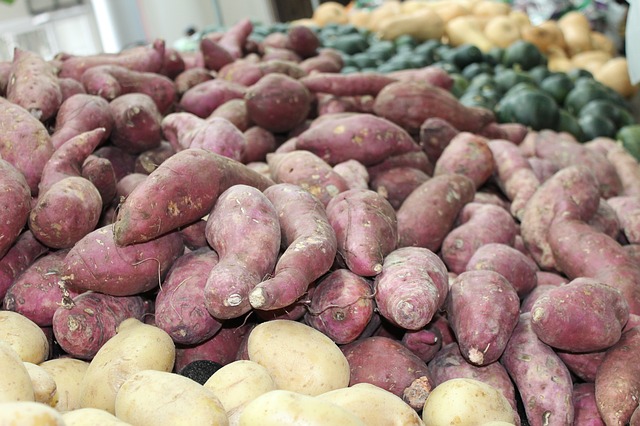
Sweet potatoes contain complex carbohydrates which make them an excellent source of lasting energy and nutrients.
A single large potato is rich in nutrients, including potassium, magnesium, iron, copper, and manganese. They are also high in Vitamin C and most B vitamins.
Aside from that, they also contain antioxidants, especially beta-carotene. Antioxidants are compounds that give the body several health benefits. They also help reduce the risks of chronic diseases, including cancer.
Sweet potatoes are the most filling foods and are very easy to prepare. You can boil, roast, or fry sweet potatoes as either a side dish or as a part of the main course.
In preparing meals with sweet potatoes, allow them to cool after cooking. This process would make the potatoes form resistant starch, a nutritious substance with many healthful benefits.
The takeaway
When it comes to food, you should place more importance on quality rather than quantity. If you want to acquire more nutrients without piling up those calories, then changing your lifestyle and adding nutrient-dense foods to your diet is the best solution.
Start adding these nutrient-dense foods to your meals today, and you’ll be surprised by the many health benefits you will reap in the future.
About The Author:
Karstine Mae Sanchez is a content marketer at OkayRelax. She loves writing content on business and work management, food and nutrition, and travel lifestyle. When she is not busy, you can find her at the beach, exploring different islands, seeing beautiful waves, and walking in the sand.



